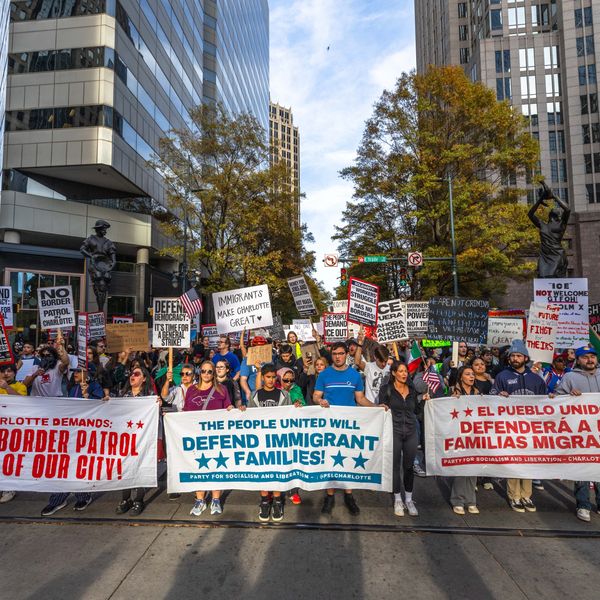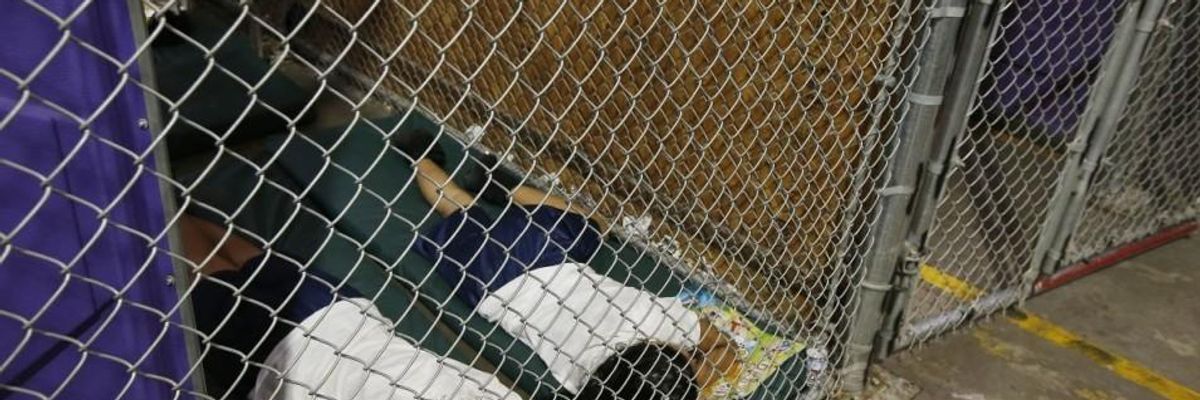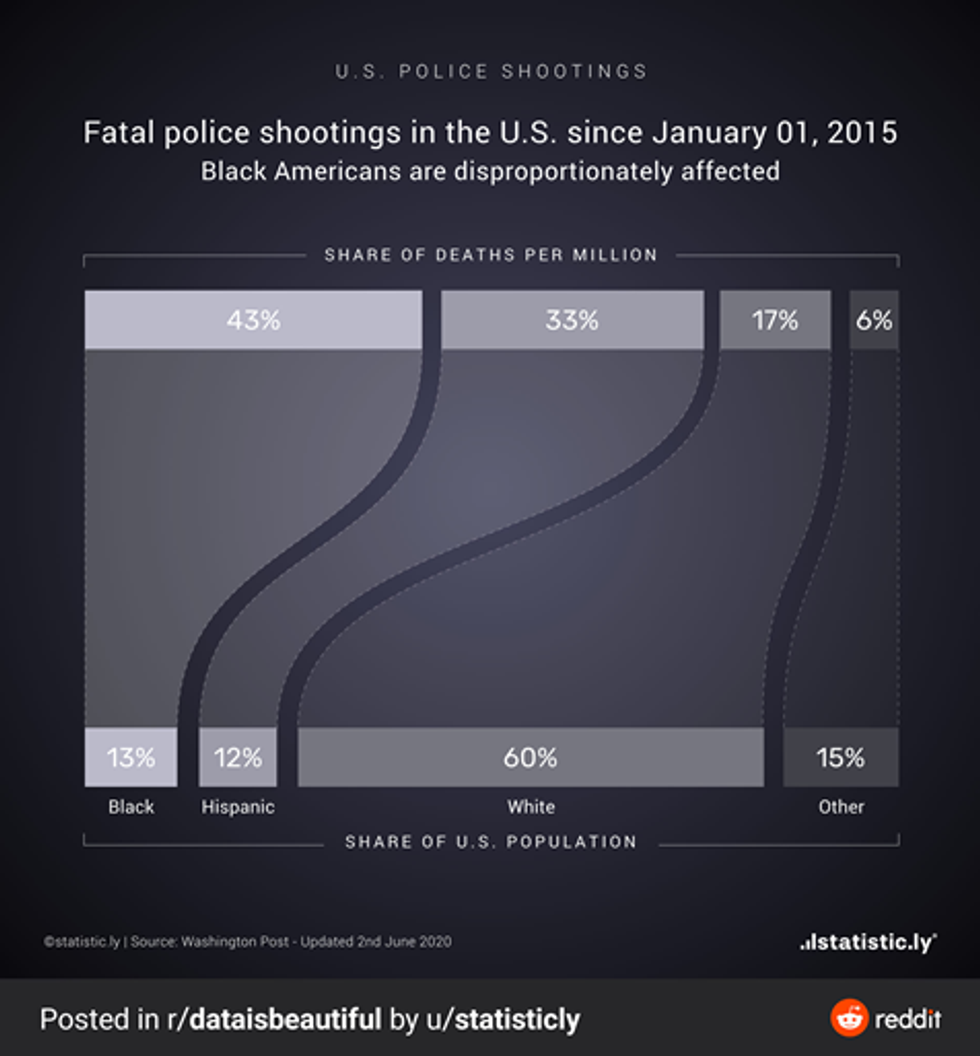In 2016, the Center for Latin American and Latino Studies at American University launched a study into the lives of unaccompanied Central American youth residing with sponsors in the Washington, D.C. metropolitan area. Many youth reported that they wished to eventually return to their home countries but that it often was not safe for them to do so because of threats from organized crime or government authorities. In our survey, youth expressed that police in their home countries had targeted them and their families. There, if it was not the police, it was local gangs or MS-13. In the United States, the major threats to them have also been gangs and the police. Sometimes youth reported pressure to join local gangs in their home countries, which many of them resisted successfully. Nonetheless, some police officers and members of the community assume that these young men are gang members. Youth often feel terrorized by gangs and police in both their home and host countries while their parents are very busy working multiple low-paying jobs to ensure their safety, health, and education.
There have long been efforts to abolish ICE, and recently a group of Undocumented, DACAmented, and formerly undocumented leaders published an open letter to the Immigrant Rights Movement. They make a clear case as to why the Immigrant Rights movement is in line with, and in clear support of, the Black Lives Matter movement. Youth integration outcomes in Washington, D.C., as shown by our study, illustrate yet another reason why.
Integration refers to the process of immigrants feeling as though they belong or feel at home in their neighborhoods, communities, cities, and country overall. Unlike assimilation, integration, or incorporation, allows immigrants to maintain their cultures, customs, and mores while still being included as part of the general public. Immigrants have different immigration outcomes depending on local contexts: in France, for instance, immigrants from North Africa find themselves in a highly xenophobic environment where they may never feel truly "French" (Castaneda 2018). So the question emerges: how do we aid integration?
Contexts where institutions and society accept immigrants more readily are those where integration occurs more effectively (Castaneda 2018). Effective integration prevents extremism and creates more close-knit and compassionate communities. Furthermore, it safeguards an overall democratic structure. Unfortunately, the political discourse around immigration does not often include how to effectively create environments conducive to integration. Rather, politicians scapegoat groups of people, such as immigrants, for the economic anxieties created by neoliberal economic policies (Castaneda 2019, Castaneda 2020). Due to this, we get caught in conversations about building walls and deportations rather than acknowledging and recognizing the humanity of others and seeing the entire situation for what it is.
The integration needs of immigrant youth referenced in the study are many, but there are things that can be done to address them. Our findings showed that some schools are more prepared than others to receive these youth and provide services to them and their families that make them feel more at home, and thus integrated. For instance, many of these young people still need to learn English. Many of them have also often experienced significant traumas at home and during the journey to the United States. Traumatic experiences can, in turn, affect their attention span and behavior in school. Because of this, immigrant youth need English for Speakers of Other Languages (ESOL) courses, more social workers in schools, and the ability to be connected with other social services, both for them and their families.
Our research also found that youth did not worry much over their own legal status per se, but many did worry about the deportation of their parents or other family members, some of whom they had been reconnected with for the first time in many, many years. The last thing that we should be doing as a country is targeting and tearing apart families. Because our immigration system has decided to let these youth come and stay, we owe them a life of dignity that is free from fear and terror. Separating their families is not a way to ensure even the most basic human rights. Instead, by decreasing some of the 8 billion that is spent on Immigration and Customs Enforcement (ICE) for programs that more effectively handle immigration as a nuanced and multifaceted topic. It could be redistributed it into the Office of Refugee Resettlement, school districts with high numbers of unaccompanied youth, and the expansion of educational and work opportunities for immigrant youth and their families, would allow them to more quickly prosper in the United States.
Abolishing ICE, dismantling DHS into smaller units, re-imagining the Border Patrol's work, and updating the Office of Refugee Resettlement's procedures could result in more efficient use of funds that solve problems rather than create new ones.
The results of this survey illuminate why we must still address the demands of the Immigrant's Rights movement. These demands include overhauling the immigration and asylum system, aiding the integration of youth and adult migrants in their communities, and investing in community development at home and abroad. Furthermore, the results reveal the effects of the massive funding of law enforcement agencies, including local police and ICE, alongside the defunding of education, social work, and mental health services. This disproportionate funding structure has left minorities and oppressed people in far worse conditions than non-minorities. Education funding, affordable housing, and a wide range of other necessities experience funding cuts that disproportionately affect black and brown and low-income communities.
Many of the people calling for the defunding of the police feel that not only do police unfairly target black and minority communities throughout the country, but that city budgets and politicians have been willing to defund education, healthcare, and social services while simultaneously expanding the budgets of the police. Immigrant and Latinx communities also suffer at the hands of police and would benefit from the defunding and subsequent re-investment of public resources into social programs and education in their communities. Furthermore, abolishing ICE, dismantling DHS into smaller units, re-imagining the Border Patrol's work, and updating the Office of Refugee Resettlement's procedures could result in more efficient use of funds that solve problems rather than create new ones.
After Black Americans, Hispanic Americans are the second-most disproportionately affected racial group by fatal police violence in the U.S., as shown in the chart below.
Black Americans are most disproportionately affected by policing and community disinvestment. Yet, ultimately the fight for racial and economic justice, and against racialized police brutality, needs to concern everyone. Racial justice is also about how the federal government handles the southern border, visa allocation, asylum and refugee status, family separations, deportations, immigration detention centers, and even foreign policy.
Further attacks on DACA by the Trump administration and a failure to pass the DREAM Act could bear significant consequences toward immigrant integration, pushing immigrants further into the shadows and minimizing their ability to interact with public institutions such as higher education (Castaneda, 2020). This is why the police and ICE should be defunded or abolished: they do not serve the general public, but profile U.S. Citizens and tear families apart.
During the past year, there have been widespread calls to abolish Immigration and Customs Enforcement (ICE). These calls came in response to the egregious living conditions in detention centers, countless family separations, and overall gain of traction from the growing Immigrant Rights movement. Calls to abolish ICE follow the same logic of calls to defund municipal police forces: a government agency does more harm than good, especially to a single categorical group, and the funds allocated to them would be better used on things like community development, social services, and education. Progressives in Congress are pushing for a meager reduction of the Department of Defense budget a 10% reduction would provide $74 billion that could be reinvested into cities and towns that are disproportionately affected by incarceration and poverty.
As previously referenced, ICE has an annual budget of approximately 8 billion dollars. The Office of Refugee Resettlement (ORR), to compare, only receives $1.9 billion annually. While this is indeed a substantial amount of money, the ORR could nearly double the scope of its operation with only a quarter of ICE's funding. We propose that ICE's funding be used to fund nationwide social integration programs for unaccompanied youth residing in cities across the United States, and USAID/State Department aid for communities ravaged by poverty and lack of economic opportunity in Central America. We believe that this defunding of ICE and subsequent funding of other immigration policy programs could create an all-around better world where youth can both safely return to their country of birth if they choose to do so, and simultaneously feel at home when they are in the United States.
Integration does not just happen -- it is dependent on local context, public policy, and the sociocultural environment someone hails from. The ever-increasing funds given to police forces and ICE could be used to actually craft these local environments and enact pro-integration policy. Youth in D.C. who have experienced abuse and profiling at the hands of police in the U.S. and Central America illustrate how policing as we currently understand it is rife with issues, but also that the funding we put into policing may be less efficient in creating "safe" communities than if we put them toward resources in schools, affordable housing, and labor protections. Abolishing ICE and defunding the police would allow for better deliberate integration of youth and families, stronger feelings of "safety" for immigrant communities, and the promotion of stability in other parts of the world.




